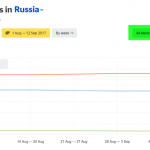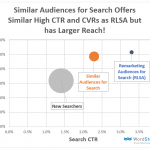GIF Search Engine Giphy Gets $72M
Giphy, the platform for all things GIF, raises $72 million in new funding
Posted by Jordan Crook (@jordanrcrook)

Giphy, the NY-based search engine and platform for GIFs, has raised $72 million in funding led by Draper Fisher Jurvetson, Institutional Venture Partners and China Media Capital.
This brings Giphy’s total funding to just short of $151 million, according to Crunchbase, with a valuation reported at $600 million by the WSJ.
Giphy started as part of a Hacker-in-Residence program at betaworks, with the goal to make GIFs more searchable and shareable. The platform has since evolved into a suite of GIF-based products, including the ability to turn video into a GIF, a GIF keyboard called Giphy Keys, and a portfolio of ‘enterprise’ tools to help media companies turn their content into GIFs.
That said, Giphy hasn’t actually activated any form of monetization, instead offering its tools and resources to publishers and media companies for free. For example, Giphy has a team that helps broadcast networks turn media events like the Oscars or the Emmys into a library of GIFs, all in real time.
Around 80 percent of Giphy’s activity comes from GIFs of TV, movies, or celebrities. So Giphy offers its services for free in order to produce and deliver, without copyright restraints, the content that its users so love.
It may seem like that exchange doesn’t bode well for Giphy’s future revenue streams, but Giphy CEO Alex Chung sees a huge opportunity in advertising.
At TC Disrupt SF in September, Chung explained that mobile messaging has yet to land on a native advertising format, and that GIFs could fill that role. You can imagine how, in the context of messaging between friends, brands could insert their products into intimate conversations in a format that could feel relatively natural and highly relevant.
Giphy also has the opportunity to monetize the same way Google Search does, through sponsored search results.
For now, however, Giphy has said that it won’t flip the monetization switch as long as the service keeps growing and investors are willing to invest. (And they obviously are.)
(19)













